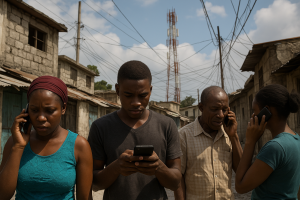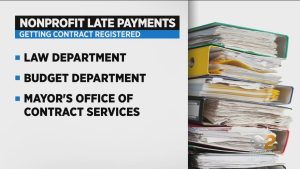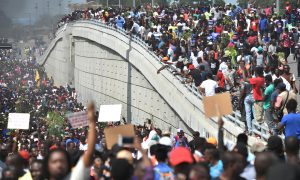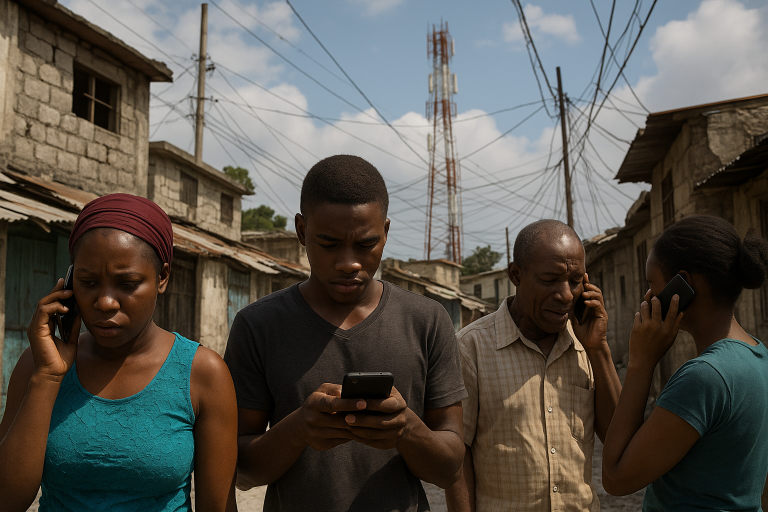Amidst the vibrant culture and resilient spirit of Haiti lies an unfolding tragedy, as the nation once again finds itself gripped by violence and political instability. Recent reports from the capital, Port-au-Prince, tell a harrowing tale of heavy gunfire in close proximity to the National Palace, indicating a significant escalation in gang-related activities.
At the heart of the crisis are the country’s gangs, which have become increasingly powerful and militarized. Their influence has spread across Haiti’s social and political landscape, with territorial disputes and control over resources fueling a cycle of violence and retaliation that shows little sign of abating.
The complex tapestry of Haiti’s troubles weaves together multiple factors, each interacting with the next in a delicate and often dangerous balance. The political vacuum left by the assassination of President Jovenel Moïse has exacerbated the situation, leaving a leadership void that the gangs are all too eager to fill with their own form of governance.
International aid and interventions have met with mixed success, struggling to achieve long-term stability. Each proposal for outside assistance must be weighed against the potential for unintended consequences, such as undermining local institutions or enabling a dependency that hampers Haiti’s own development.
Meanwhile, the economic factors cannot be ignored. Haiti’s economic fragility has made it difficult for the government to address the root causes of gang proliferation – such as poverty, unemployment, and lack of education. The gangs often provide a perverse form of employment and security for those who see no other opportunities, which only further entrenches their role in society.
The challenge lies in navigating these trade-offs while striving to implement solutions that are sustainable, equitable, and respectful of Haiti’s sovereignty. Any approach must balance immediate humanitarian needs with the long-term goal of building robust civic institutions capable of upholding law and order.
The urgency of addressing this crisis cannot be overstated. Every decision made by national leaders and the international community alike bears a significant impact – both on the lives of the Haitian people and the nation’s future trajectory.
In conclusion, while the gunfire near the National Palace serves as a stark reminder of the challenges confronting Haiti, it is imperative that any exploration of this issue, any strategy devised, and any assistance rendered be done with a deep understanding of the intricate web of factors at play. Only by acknowledging the complex interplay between political, economic, and social elements can stakeholders hope to craft a path forward that brings peace and prosperity to the people of Haiti.
What are the key factors contributing to the crisis in Haiti?
- Political Instability: The assassination of President Jovenel Moïse in July 2021 left a power vacuum and exacerbated political chaos in the country. The lack of a stable government has made it difficult to implement policies and maintain order.
- Gang Violence: Heavily armed gangs have filled the power void, fighting for control over territories and resources. Their rise in power and influence is a critical factor impacting security and order within Haiti.
- Poverty and Economic Hardship: Haiti is one of the poorest countries in the Western Hemisphere with a high unemployment rate. Economic hardship has fueled desperation and contributed to the viability of gangs who offer a source of income and protection.
- Natural Disasters: Frequent earthquakes and hurricanes compound the nation’s troubles, destroying infrastructure and displacing thousands, which hinders development and creates an environment where criminal organizations can thrive.
- Corruption and Weak Governance: Corruption has plagued Haiti’s institutions, leading to widespread mistrust and ineffective law enforcement, which in turn allows criminal gangs to operate with relative impunity.
- International Interference: Historical foreign interventions and current international policies have affected Haiti’s ability to self-govern and develop its economy autonomously.
As the world’s eye turns toward this beleaguered nation, we are reminded once again of the importance of informed, compassionate, and coordinated action shaped by an appreciation of Haiti’s unique cultural and historical context. In doing so, we honor the resilience and dignity of its citizens as they navigate these most challenging times.












Add a comment